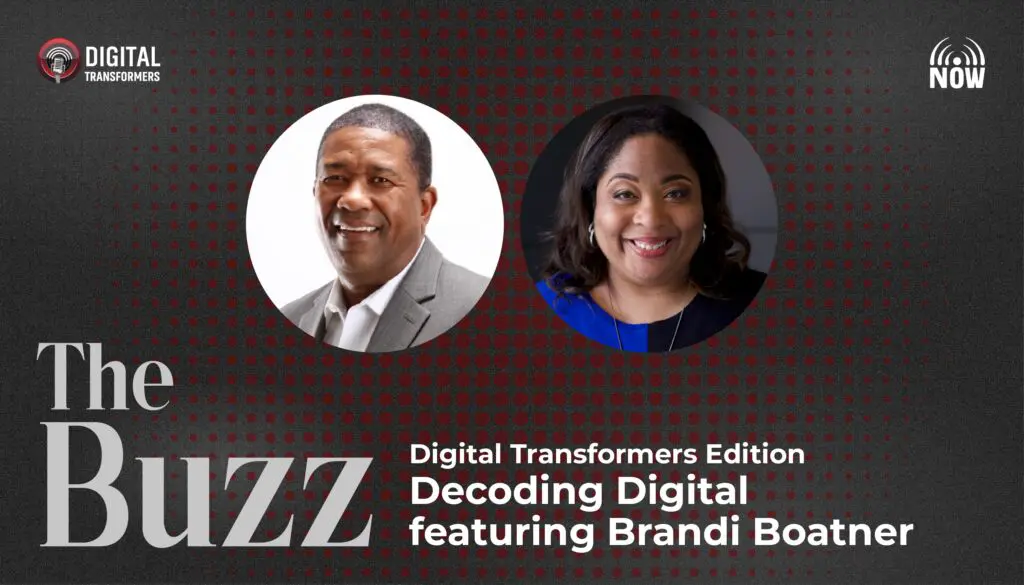Greg White (00:04):
It’s time to wake up to tequila, sunrise, Greg white here. And I have spent my career starting leading, deploying, and investing in supply chain tech. So we take a shot and talk founders, execs investors and companies in this hot industry. If you want a taste of how tech startup growth and investment is done, join me for another blinding tequila sunrise. In this episode of tequila, sunrise, I am sharing five things that supply chain tech definitely won’t do for your company. If you’re contemplating purchasing supply chain tech or deploying it right now, listen up because you’re going to learn what you need to know to make supply chain technology work for you and your company, unless you’ve been living under a rock, which if you remember 2020 at all, may well be the case. You know, that supply chain and more specifically supply chain technology is an overnight sensation after just four decades of existence.
Greg White (01:08):
So why the sudden awakening consumer empowerment growth in e-commerce vicious competition, pressure to increase transparency, sustainability, fair trade human rights. And yes, of course COVID all drove increasing awareness of supply chains, impact on commerce and increase the pace of technology adoption and digital transformation in all supply chain disciplines. Yet too often, company leaders fall prey to what I call the technology paradox, the mistaken perception that the technology they’ve just deployed as a silver bullet remedy to all that ails the company, plug it in, turn it on, change the game overnight. Of course, we all know this. Isn’t how it works, but still somehow we get caught up in the hopeful hype that gets leaders to sign on the dotted line. So what are these five things that supply chain tech won’t do for you? And what can you do about it? First supply chain tech won’t create healthy supply chain partner relationships.
Greg White (02:16):
It won’t create them because technology can’t overcome poor partner relationships. If your relationship lacks clearly understood and aligned expectations and metrics and communication, and especially trust technology is not your answer. Establish healthy relationships. First, then enlightened enable and enhance them with tech technology can enlighten your partners with transparent information and improve communication to help you jointly perform better to meet your supply chain goals. You can also enable improved performance from your partners with tech that provides insight to desired metrics plans and other information to let them know where stand and you can enhance existing trust by sharing generously the information that helps partners improve and use the information you obtain from your partners to improve your part of the bargain. Number two. And this is a big one. You cannot fix bad supply chain processes with technology. Now, what tech will do is highlight your inadequacies and conduct bad processes more rapidly and slave initially to the poor process structure, accelerating your decline with ruthless precision.
Greg White (03:35):
It is absolutely critical that in any technology or digital transformation that you identify at least the greatest offenders among bad processes and redesign them starting with their desired outcome and working backwards begin with the end in mind, right? And forget, this is how we’ve always done it. Look, the good news is that you can survive processes that are merely suboptimal and not catastrophic, really flawed. In fact, you’ll discover these lesser process flaws quickly when you implement tech and with the knowledge you’ve gained from correcting truly bad processes, you’ll rapidly and continually improve them to obtain the outcome that technology efficiently drives you toward. All right, third, but so much like number two, technology will not overcome poor strategy management process or performance in business areas that work in conjunction with, or that have impact on the supply chain. Learn how for instance, planning impacts transportation and vice versa, how other adjacent areas are affected and fix those truly bad interactions or processes or conflicting goals, then watch both supply chain and sales and product and merchandising and operations, and more rise with the tide of your digital and technological transformation solve these core related issues prior to deploying those technologies.
Greg White (05:04):
Or again, at least the catastrophic, the bad ones, and then come back and refine as you go through your technology implementation. And for no matter what you hear, at least for the foreseeable future technology will not replace humans in every aspect of supply chain. No, not automated planning, not robotics, not AI or blockchain. Humans are still the most adept exception management technology in your stack. AI and other tools are better to be thought of as curious children rather than robot overlords. They require guidance, coaching and redirection from humans. This is often euphemized as scientific tuning in machine learning and AI implementations. Humans are at least today more adept at understanding the big picture extrapolating from abstract experiences and interpreting the vagaries of management direction to identify an appropriate. The solution. Also humans are far less likely when left to their own devices to cease their assigned task and create a new language that their superiors can’t decipher ask Elon Musk his opinion on this real life situation.
Greg White (06:21):
In fact, Google to AI computers create own language. It’s an interesting read though, a lot more fun than sinister still. It never happens with humans to grossly simplify it, consider technology a way to do really complex computer things, heavy math, rapid learning, flawless and repetitive execution or things that are mundane, repetitive, dangerous, or difficult for humans and a means to enable humans to do human things such as instantaneous problem solving without sufficient data and informing technology to improve its learning process. And number five, technology will not create nor will it survive. A lack of buy-in to management mandates that have been issued without consulting the professionals that must put technological and digital transformation into place. I’m sure that this doesn’t need to be said, but I needed to say it, engage your team, meet their needs. Don’t get their buy-in except what they’ve already bought into as the foundation of your transformation solve their biggest problem.
Greg White (07:34):
If you need a brief primmer on digital transformation and how I make it work, you can go to episode eight of tequila, sunrise. It’s just a few minutes and worth the study. Finally, as a bonus. And for reasons, I think we all know deep in our hearts, I’m adding a sixth thing that technology won’t do for you. No technology will not predict the impact of the next major disruption. Can it enable detection, responsiveness and agility? Absolutely. Can it predict no. Seek out speed to detection, rapid response and agility in any supply chain technology that you consider to quote John Soccard the CEO at us speed to detect leads to speed, to correct. Look, this is by no means an exhaustive list. There are so many more flaws that your supply chain technology can’t overcome. It’s impossible to create a comprehensive list, but if you keep your eyes open for things like individually created solutions, like someone who has my spreadsheet or routine manual overrides of current processes and continual conflict among them apartments or business units or partner companies, you’ll start to see the signs of flaws you need address before, or at least during any technology implementation.
Greg White (08:59):
Look at supply chain technology. The answer for you very possibly yes, but not the only one, not the only answer begin with the end in mind and know that if you want to build to the sky, you must assure a solid foundation, build your house on stone. Thanks again for spending your time with me. And remember like I do acknowledge reality. Tequila is part of the supply chain. Now network the voice of supply chain, featuring the people technologies best practices and key issues in the industry. And Hey, listen up to build your supply chain knowledge. Listen to get this supply chain is boring. We’re Chris Barnes connects you to the who’s, who that got supply chain, where we are point as to where we’re going and take us to the next level or check out this week in business history with supply chain now’s own Scott Luton to learn more about everyday things you may take for granted and pick up quick insights you can use as inspiration and conversation starters.
Greg White (10:03):
Our logistics with purpose series puts a spotlight on inspiring and successful organizations that give first give forward as their business model. If you’re interested in transportation, freight and logistics, have a listen to the logistics and beyond series with the adapt and thrive mindset, Sherpa, Jaymin Alvidrez, and also check out tech talk hosted by industry vet and Atlanta zone. Corrinne bursa supply chain pro to know of 2020, where Korean discusses the people, processes and technology of digital supply chain for sponsorship information on tequila, sunrise, or any supply chain. Now show DME on Twitter or instagram@gregoryswhiteoremailmeatgregatsupplychainnow.com. Thanks again for spending your time with me
Speaker 2 (10:53):
Acknowledge reality, but never be bound by it.



